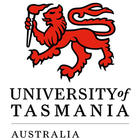Diploma of Dementia Care
- Posted by University of Tasmania (UTAS)
- Home
- Courses
- University of Tasmania (UTAS)
- Diploma of Dementia Care
Diploma of Dementia Care
With the rise in prevalence in dementia and the need to provide quality care in the community, health care centres and hospitals, and in residential care, it is becoming essential that health care workers in aged care develop specialised knowledge in this field so that you can make a difference…
Categories
COURSE DESCRIPTION
With the rise in prevalence in dementia and the need to provide quality care in the community, health care centres and hospitals, and in residential care, it is becoming essential that health care workers in aged care develop specialised knowledge in this field so that you can make a difference to the lives of people living with dementia.
This course has been developed by the Wicking Dementia Research and Education Centre, global leaders in dementia education with a mission to transform the understanding of dementia worldwide.
Offered fully online course with no face to face or workplace assessment components, this course is designed to be undertaken by the wide range of personal and professional carers and others who work and interact with people living with dementia around the globe.
Learning Outcomes
- Describe structure, function and dysfunction of the nervous system in the major diseases causing dementias
- Discuss the multidisciplinary evidence for approaches to optimise the health and social care of older people including those living with dementia
- Explain collaborative, person-centred approaches to inclusion, support and care of diverse people living with dementia and their families
Career outcomes
Over 400,000 Australians are currently living with dementia, this number increases every year. The impact on communities, families, governments and health professionals will be significant as these numbers increase. Our workforce is currently ill equipped to help care for such large numbers of people living with dementia – by 2050, it is estimated that there will be over 900,000 people in Australia living with dementia.
Individuals with backgrounds in healthcare, community service and allied health professionals, may find study in this course advantageous. The Diploma of Dementia Care is particularly relevant to Aged Care Workers and health professionals wishing to develop their knowledge of dementia, to increase their confidence when working with people living with dementia and to enhance their practice.
REQUIREMENTS
Admission to undergraduate courses at the University of Tasmania requires the completion of qualifications equivalent to the 12th year in Australia.
General Entry Requirements
This is an open access course.
Course Specific Requirements
Students must have access to a computer, reliable internet connection, webcam, headset and microphone.
English Language Requirements
IELTS (Academic) Score 6.5 (no individual band less than 6.5)
TOEFL (iBT) 88 (no skill below: Reading 21; Listening 21; Speaking 21; Writing 25)
PTE Academic 58 with no score lower than 58
English for Academic Purposes 2 – 65% (no individual score less than 65%)
Cambridge English C1 Advanced 176 with no less than 176 in any skill
EDUCATIONAL INSTITUTION
The University of Tasmania was officially founded on 1st January 1890 and is located at Sandy Bay, Tasmania. In addition to the main campus at Sandy Bay, it also operates out of the Newnham Campus and the Cradle Coast Campus. The most popular courses offered are the environmental studies that include wilderness management, marine sciences and indigenous studies in Tasmanian literature. Other unconventional courses include agriculture development, studies on the community and population and ocean study programs. The university also comprises of a Music Conservatorium, Art school and a School of Clinical studies.
The University of Tasmania was officially founded on 1st January 1890 and is located at Sandy Bay, Tasmania. In addition to the main campus at Sandy Bay, it also operates out of the Newnham Campus and the Cradle Coast Campus. The most popular courses offered are the environmental studies that include wilderness management, marine sciences and indigenous studies in Tasmanian literature. Other unconventional courses include agriculture development, studies on the community and population and ocean study programs. The university also comprises of a Music Conservatorium, Art school and a School of Clinical studies.




